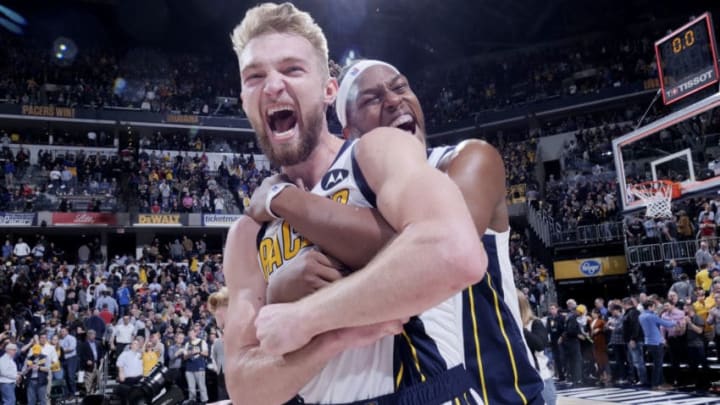In an NBA landscape where everyone seems to be chasing a similar formula, the Indiana Pacers are doing their own thing.
I’d like to start this discussion off by looking at some key contracts from the last 3 years not signed by your Indiana Pacers. These all fall after the cap explosion and resulting contract disaster many teams faced after signing ill advised long term deals, meaning these were all signed after half of the NBA compromised their cap flexibility and asset pool.
2019:
Tobias Harris: 5 years, $180 million
Harrison Barnes: 4 years, $85 million
Bojan Bogdanovic: 4 years, $73 million
Rudy Gay: 2 years, $32 million
Trevor Ariza: 2 years, $25 million
Marcus Morris: 1 year, $15 million
2018:
Trevor Ariza: 1 year, $15 million
Rudy Gay: 1 year, $10.1 million
Kyle Anderson: 4 years, $37.2 million
Nemanja Bjelica: 3 years, $20.5 million
2017:
Otto Porter Jr: 4 years, $106.5 million
Danilo Gallinari: 3 years, $64.8 million
James Johnson: 3 years, $43.4 million
Joe Ingles: 4 years, $52 million
Since the rise of the Golden State dynasty – spearheaded by the “Death Lineup” – the rest of the NBA has obsessed over going with small ball power forwards. Many of the players listed above are good players in a vacuum, but all of them are overpaid. Some are simply too many years for their age, some are way too much money yearly, and some just aren’t very good.
More from 8 Points, 9 Seconds
- 2 Studs, 1 dud from gut-wrenching Indiana Pacers loss to Charlotte Hornets
- Handing out early-season grades for Pacers’ Bruce Brown, Obi Toppin
- 3 positives, 2 negatives in Pacers In-Season Tournament win vs. Cavaliers
- 2 positives, 3 negatives from first week of Indiana Pacers basketball
- Should Isaiah Jackson’s days with Indiana Pacers be numbered?
They all share one common trait, though: they all can play small ball power forward. Teams are desperate, and they’re paying like it. This has a ripple effect on teams and on the league as a whole. If a majority of teams are overpaying for inferior players at a specific position, there’s a market inefficiency at others.
The Pacers don’t have the cache (or the cash) to bid for these players. That’s exactly what we just saw play out with the 30-year-old Bojan Bogdanovic. Bogey was coming off a career year with the Pacers. Indiana gave him his first opportunity to start, and helped turn him from a 10 million dollar a year backup for a highly compensated starter, but they still lost him to an overwhelming contract offer.
The Pacers offered good money for the 30-year-old forward, but were trumped in dollars and years both by the Utah Jazz. The Jazz will be paying Bogdanovic over 18 million bucks when he’s 34. Bojan will almost certainly be on the downside of his career at that point. His game should age well, but that’s heavy money for a guy with limited athleticism at that age. That theme repeats itself over and over in the above list. Rather than bid for the privilege to pay out bad contracts, the Pacers have gone another direction.
What’s the big idea?
In committing to starting Domantas Sabonis and Myles Turner together while drafting Goga Bitadze, the Pacers have cast their lot into the bully ball ring. While teams around the NBA have prioritized going small to challenge the (now defunct) death lineup Golden State terrorized teams with, Indiana is looking to brutalize those teams with size and strength.
There are two big parts to making this whole thing work.
